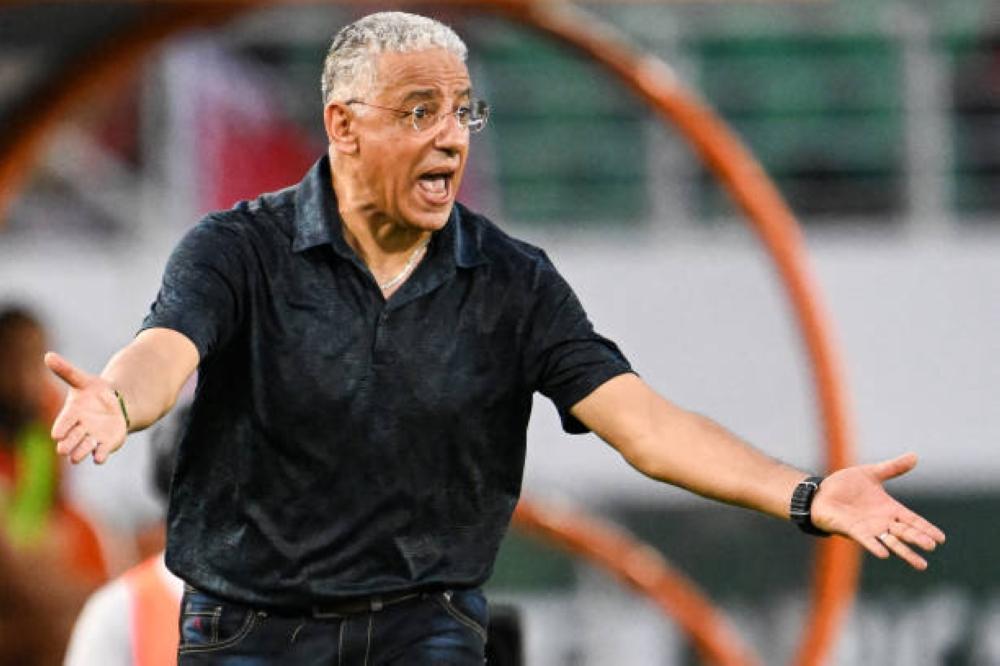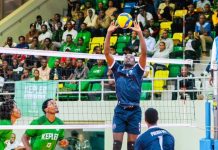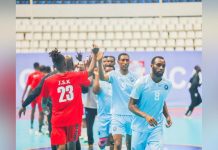Africa-Press – Rwanda. Adel Amrouche, the newly appointed head coach of Rwanda’s national football team, steps into a role laden with both promises and challenges.
Amrouche, 56, brings extensive coaching experience, having previously managed national teams across Africa, including Libya, Equatorial Guinea, Botswana, Kenya, Burundi and Tanzania.
However, his task is far from simple—Rwanda’s national team has long been stuck in mediocrity, with little success on the continental stage.
Yet, this is also a time of opportunity, as Amrouche is tasked with building a competitive squad to elevate Rwanda’s football status and perhaps make a historical breakthrough in the 2026 FIFA World Cup qualifiers.
His immediate focus will be preparing the Amavubi for their upcoming World Cup qualifying matches against Nigeria (March 17) and Lesotho (March 24) at Amahoro Stadium.
These games are crucial for Rwanda’s qualification hopes and will test Amrouche’s ability to get the best out of a team that, although currently leading its World Cup qualification group, has struggled historically in international competitions.
The Amavubi face a daunting task of overcoming heavyweights like Nigeria and South Africa in their group.
But the 56-year-old, with his vast experience across African football, probably understands the challenges of managing in a high-pressure environment.
He knows that with little time to implement his tactics before these key matches, he will have to rely on the groundwork laid by his predecessor, Torsten Spittler.
Amrouche’s ability to adapt quickly and build on this platform will be critical. Failure to do that, and he also become a statistic before the end of his two-year contract.
Limited resources and high expectations:
One of the key challenges that Amrouche will face is Rwanda’s limited resources, both on and off the pitch.
Unlike powerhouses such as Nigeria, South Africa, Morocco, Egypt, or even Amrouche’s native Algeria, Rwanda’s football infrastructure and financial backing are not on the same level.
Algerian gaffer Adel Amrouche (L) was appointed Rwanda head coach on a reported two-year deal-courtesy
The team’s budget is modest, and they do not have the luxury of world-class facilities or top-tier club competitions to draw talent from.
However, Amrouche is no stranger to working with limited resources. He has led teams with fewer advantages, particularly during his time coaching in countries like Burundi and Yemen.
In Rwanda, he will need to maximize the potential of the players at his disposal and instill a sense of discipline, resilience, and tactical acumen to overcome these limitations.
He will have to make the most out of Rwanda’s home-grown talents, focusing on their development and playing to their strengths.
Rwanda’s limited success on the continental level, including their near-miss at qualifying for the 2025 Africa Cup of Nations, also adds pressure on the Algiers-born former midfielder.
The team’s only “major” trophy to date, if you may like, was the 1999 CECAFA Senior Challenge, and they have qualified for the AFCON only once in 2004.
This long history of underachievement makes Amrouche’s task even more daunting.
He must not only push the team to compete at a higher level but also instill a sense of belief and unity within a squad that has often faltered in crucial moments.
Political and mental challenge:
Another challenge for Amrouche will be navigating the political and managerial instability within Rwanda’s football system.
The country has witnessed one of the highest turnover rates of coaches in African football, with a staggering 24 different coaches in the last three decades.
This high turnover rate is indicative of the impatience that plagues Rwandan football and adds to the pressure on the incoming coach to deliver results quickly. Amrouche must therefore tread carefully. He must hit the ground running.
While he has the technical expertise, he must manage expectations within a football culture where stability is often lacking. Appetite for quick-fix is Amavubi’s Achilles’ heel.
His previous experience with the national teams of Libya, Equatorial Guinea, Kenya, and Tanzania shows that he understands how to manage under pressure, but in Rwanda, his ability to foster long-term success will be tested.
In the same breath, FERWAFA must also provide him with the necessary backing to ensure he has the tools to succeed, especially when it comes to the development of players and infrastructure.
Patience is the path to success:
For Amrouche, the long-term goal is clear—he must qualify Rwanda for the 2027 Africa Cup of Nations (AFCON) and help the Amavubi reach new heights in African football.
To achieve this, he will need to prioritize the development of a strong team chemistry, tactical discipline, and mental fortitude.
His role is not just about game strategies but also about fostering a culture of professionalism and unity within the squad. Spittler succeeded in this areas, and so his successor must.
One of Amrouche’s key strengths will be his ability to scout talent and give younger players a chance to shine. Rwanda has a growing pool of young talent, and Amrouche must build a team that blends experience with youthful energy.
If he can successfully identify and nurture talent, he will lay the foundation for long-term success. Short-term success is needed, and indeed most welcome but the ultimate goal should be on the future.
Amrouche’s appointment marks the beginning of a new era for Rwanda’s national team. His success will depend on how he navigates the challenges of limited resources, Rwandan football political instability, and high expectations.
If he can strike the right balance and foster a sense of unity within the team, and be able to build on the foundation left by Spittler, Amrouche may finally deliver the success that Rwandan football fans have long yearned for.
It’s possible but only time will tell.
For More News And Analysis About Rwanda Follow Africa-Press






